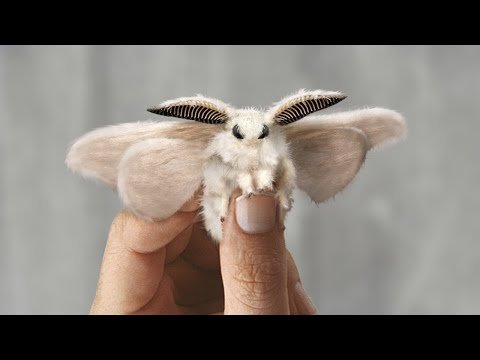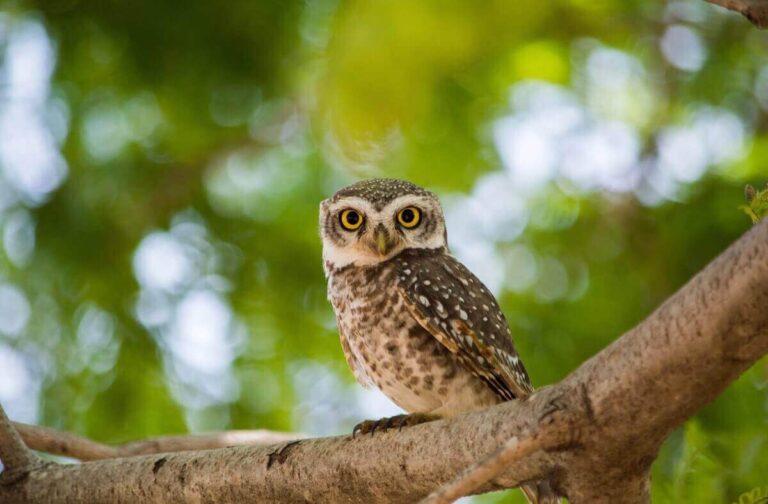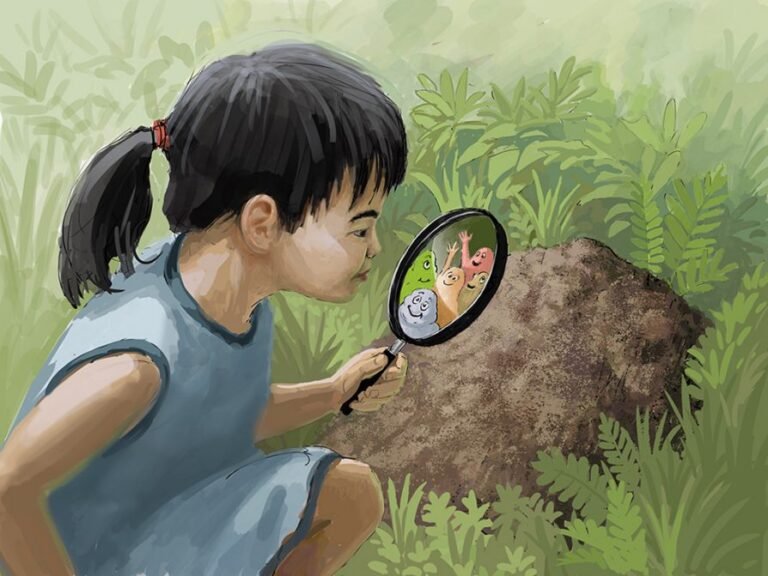Do Crocodiles Feel Pain? (Surprising Answer)
It’s a common belief that crocodiles are immune to pain, but that may not be the case. A recent study suggests that crocodiles do feel pain and that they react to it in a similar way to humans.
Researchers found that when crocodiles were given a painful stimulus, they displayed signs of discomfort such as increased heart rate and blood pressure.
They also showed a decrease in social interactions and an increase in aggression.
Crocodiles are one of the most feared animals on earth. They have a reputation for being ruthless killers, and their huge size and powerful jaws make them seem even more fearsome. But do crocodiles really feel pain?
It turns out that crocodiles may not be as insensitive to pain as we thought. A recent study found that crocodiles have a similar nervous system to other vertebrates, meaning they likely experience pain in a similar way. The study also found that crocodiles have specialised nerve endings in their mouths which are sensitive to touch and pressure – similar to our own fingertips- which suggests they may be able to feel pain in their mouths.
So it seems that crocodiles may not be the tough, impervious creatures we once thought they were. Next time you see one, remember that it might just be feeling some serious pain!
Do Crocodiles Grow Back Limbs
Do Crocodiles Grow Back Limbs?
Crocodiles are one of the few animals that can regrow lost limbs. In fact, they can regenerate any part of their body except for their teeth.
This amazing ability is due to the fact that crocodiles have a high concentration of stem cells in their bodies. Stem cells are undifferentiated cells that have the ability to differentiate into any other type of cell in the body. When a crocodile loses a limb, these stem cells go to work and create new tissue to replace the lost limb.
While this regenerative ability is impressive, it does have its limits. Crocodiles can only regrow limbs if they lose them early in life. Once they reach adulthood, they lose the ability to regenerate lost limbs.
Additionally, the regenerated limb will never be as good as the original. It will be smaller and weaker than the other limbs.
So, while crocodiles can technically grow back lost limbs, it’s not something that happens often and it’s certainly not ideal.
If you’re ever lucky enough to see a crocodile with a regenerated limb, you’ll know you’re witnessing something truly unique!
Do Crocodiles Eat Each Other
Crocodiles are some of the most feared predators in the world. But did you know that these reptiles will also sometimes eat each other? That’s right – crocodiles are known to engage in cannibalism, and it’s not just the big adults that do it.
Even juvenile crocodiles have been known to snack on their smaller counterparts.
There are a number of reasons why crocodiles might eat each other. One is simply for food – after all, crocodiles are carnivores, and they will eat just about anything they can catch.
If there’s another crocodile that’s an easy target, it may become dinner. In some cases, cannibalism might also be a way for a male crocodile to assert dominance over another male – by eating him, he sends a clear message that he is the alpha male in the area.
Whatever the reason, it’s clear that cannibalism is not uncommon among crocodiles.
So if you’re ever unfortunate enough to find yourself in close quarters with one of these reptiles, beware – you may end up on the menu!
Do Crocodiles Feel Sad
Do crocodiles feel sad? This is a question that has been debated among scientists for years. While there is no clear answer, there is evidence that suggests that crocodiles may indeed experience sadness.
For example, crocodiles have been known to show signs of depression when they are kept in captivity. In one study, captive crocodiles were found to be less active and had lower levels of the hormone corticosterone than those in the wild. This suggested that the captive crocodiles were under stress and possibly experiencing depression.
Similarly, another study found that baby crocodiles who were separated from their mothers showed signs of distress including increased heart rate and cortisol levels. This suggests that they were feeling separation anxiety.
Overall, while we cannot say for sure if crocodiles feel sad, there is certainly evidence suggesting that they may experience negative emotions such as stress and anxiety.
Do Crocodiles Feel Empathy
Do Crocodiles Feel Empathy?
It’s a question that has long intrigued scientists and animal lovers alike: do crocodiles feel empathy? A new study published in the journal Science provides some interesting insights.
Researchers conducted experiments with pairs of crocodiles, measuring their stress levels before and after being exposed to various stimuli. The results showed that crocodiles do indeed appear to experience empathy.
When one crocodile in a pair was subjected to a stressful situation, such as being restrained or having bright lights shone on them, the other crocodile’s stress levels also increased.
This suggests that the animals are able to understand and share the emotions of others.
The findings add to our understanding of how empathy works in animals, and could have important implications for conservation efforts. For example, if we can show that crocodiles feel empathy for each other, it may help change public perceptions of these often-misunderstood creatures.
Do Crocodiles Cry
Do crocodiles cry? It’s a tough question to answer, since crocodiles are such mysterious creatures. But let’s take a look at what we do know about these fascinating animals.
For starters, crocodiles don’t have tear ducts like we do. This means that they can’t produce tears when they’re sad or upset. However, this doesn’t necessarily mean that they don’t feel emotion.
Crocodiles are complex creatures with a strong sense of family and community. They form close bonds with other members of their group, and have been known to grieve when one of their own dies. So while we can’t say for sure whether or not crocodiles cry, it’s clear that they experience a wide range of emotions.
Can Alligators Bond With Humans
Can Alligators Bond With Humans?
Yes, alligators can bond with humans. In fact, they can form strong bonds with their owners and handlers.
Alligators are highly intelligent creatures and are very sensitive to the emotions of those around them. If you treat an alligator with respect and care, it will respond in kind.
Alligators form bonds with their owners through a process called imprinting.
Imprinting is when an animal associates a certain individual with food, safety, and comfort. When an alligator imprints on a human, that person becomes its “primary caregiver.” The bond between an alligator and its primary caregiver is similar to the bond between a parent and child.
Alligators show their affection for their primary caregivers in various ways. They may rest their heads on their owner’s shoulders or lap, nuzzle them gently with their snouts, or even give them gentle kisses on the cheek! Alligators also enjoy being petted and scratched behind the ears (just like dogs!).
What Does Crocodile Skin Feel Like
If you’ve ever wondered what crocodile skin feels like, wonder no more! Crocodile skin is dry and scaly, with a rough texture. It’s not exactly comfortable to the touch, but it’s certainly interesting!
The skin is thick and tough, providing protection for the animal from predators and the elements.
Crocodiles are often thought of as primitive creatures, but their skin is actually quite sophisticated. The scales are arranged in a way that allows the animal to move quickly through water while minimizing resistance.
And when it comes to defense, those same scales can make it difficult for an attacker to get a good grip.
So there you have it: a closer look at what crocodile skin feels like. Next time you see one of these amazing animals, take a moment to appreciate all that their unique anatomy has to offer!
What Animals Don’T Feel Pain
It’s a common misconception that animals don’t feel pain. The truth is, they do feel pain, but they experience it differently than we do. For example, dogs and cats have a different tolerance for pain than humans do.
This is because their nervous system is structured differently. Dogs and cats also have different ways of dealing with pain. Dogs will often whine or cry when they’re in pain, while cats are more likely to hide their discomfort.
There are some animals that don’t appear to feel pain at all. These include reptiles and fish. This is because they lack the necessary receptors in their nervous system to process pain signals.
However, this doesn’t mean that they don’t experience other forms of discomfort. It’s possible that they just don’t react to pain in the same way that we do.
Overall, it’s important to remember that just because an animal doesn’t show signs of being in pain doesn’t mean that they’re not experiencing it.
Each animal is unique and experiences discomfort in its own way.

Credit: en.wikipedia.org
Do Crocodiles Have Feelings?
Crocodiles are often seen as cold-blooded and emotionless creatures, but new research suggests that they may be more complex than we thought. A study published in the journal Frontiers in Zoology found that crocodiles exhibit signs of grief and distress when they lose a loved one.
The researchers observed three groups of Nile crocodiles (Crocodylus niloticus) living in captivity in South Africa.
One group consisted of adults, another of juveniles, and the last of newly hatched babies. The scientists noticed that the adults and juveniles would vocalize and display behaviors such as head-slapping when they heard the distress calls of other crocodiles, even those they didn’t know.
What’s more, when one member of a group died, the others would show signs of mourning.
Adults would stop eating and become lethargic, while juveniles would stop playing and hide themselves away. The baby crocodiles, meanwhile, would stop moving altogether and remain completely still for long periods of time.
These findings suggest that crocodiles are capable of feeling a range of emotions, from joy to sadness to grief.
This contradicts the popular belief that reptiles are incapable of such complex feelings.
While more research is needed to confirm these findings, they offer a fascinating glimpse into the emotional life of these ancient creatures.
Do Crocodiles Feel Fear?
Do crocodiles feel fear?
The answer to this question is still unknown, as researchers have not been able to study the emotions of crocodiles in depth. However, some experts believe that crocodiles may experience fear, due to their fight-or-flight response which has been observed in other animals.
When a crocodile is threatened, it will usually try to flee the scene or hide. If escape is not possible, the crocodile may become aggressive and attack. This behaviour suggests that crocodiles may feel fear in certain situations.
Can Crocodiles Feel Touch?
Yes, crocodiles can feel touch. They have a well-developed sense of touch that helps them find food and navigate their environment. Crocodiles also use touch to communicate with other crocodiles.
For example, they may gently nudge each other during courtship or aggressively bite each other during fights.
Do Crocodiles Feel Love?
It’s a question that many people have asked but there isn’t a straightforward answer. crocodiles are complicated creatures and their emotions are not well understood.
However, it is possible that crocodiles feel love.
They are social creatures and they have been known to form strong bonds with other crocodiles. They also show signs of affection towards humans who have raised them from birth.
So while we can’t say for sure if crocodiles feel love, it’s certainly possible that they do.
Crocodile bites foot off another crocodile
Conclusion
Crocodiles have long been a source of fear and fascination for humans. These powerful reptiles can grow up to 20 feet in length and weigh over 2,000 pounds. But do crocodiles feel pain?
It turns out that the answer is yes. Crocodiles have a nervous system that is similar to ours, which means they are capable of experiencing pain. In fact, they may even experience pain more intensely than we do because their nerves are more sensitive.
So why don’t we see crocodiles wincing in pain when they get hurt? It’s likely because they have evolved to suppress any outward signs of injury. This is probably an evolutionary adaptation that allows them to avoid being targeted by predators or rivals.
Despite their ability to feel pain, crocodiles don’t seem to show much empathy for others in their species. In one study, researchers found that crocodiles did not try to help injured members of their group. However, this doesn’t mean that crocodiles are heartless creatures – it’s just that they aren’t motivated by empathy the way we are.







